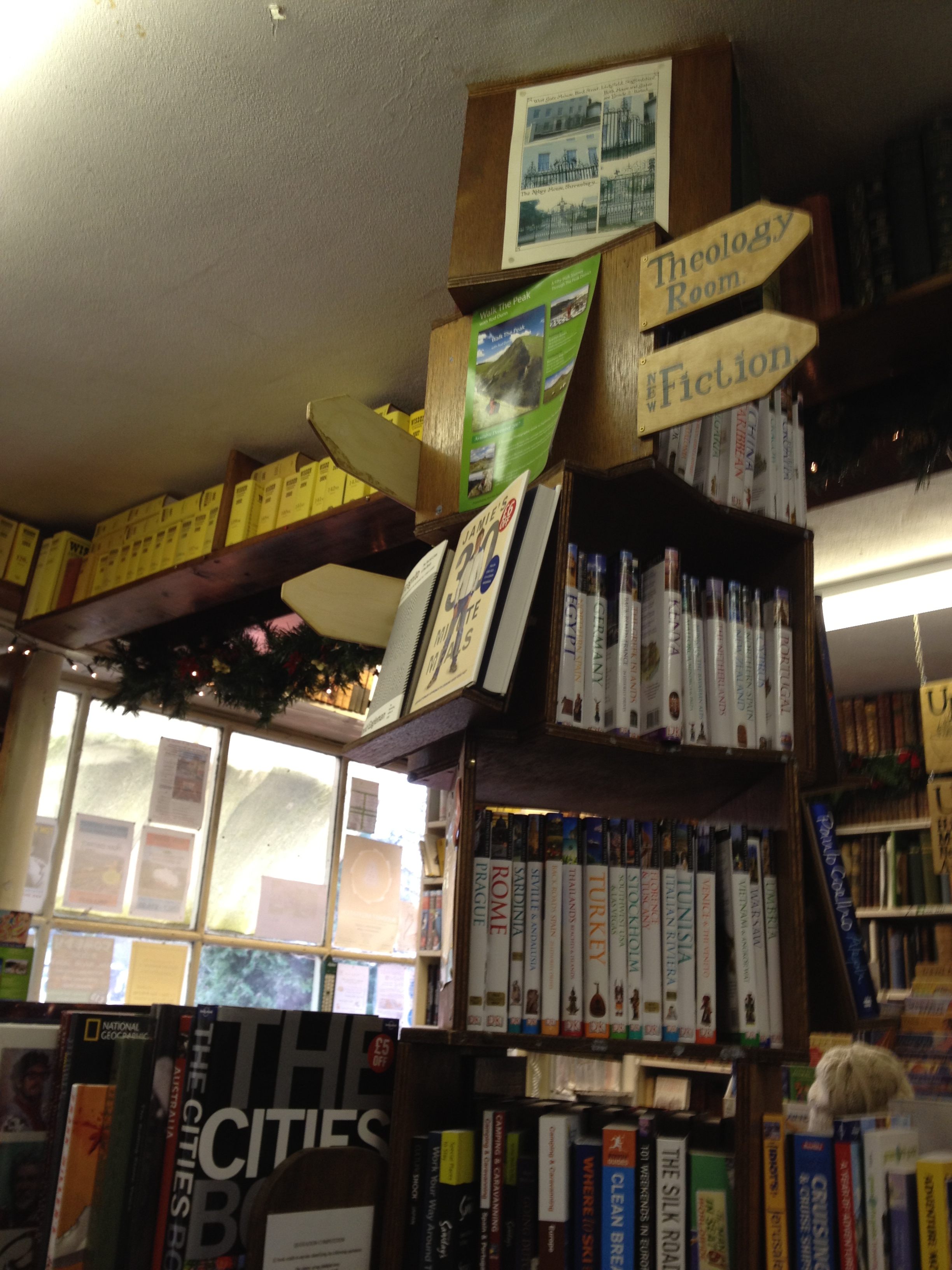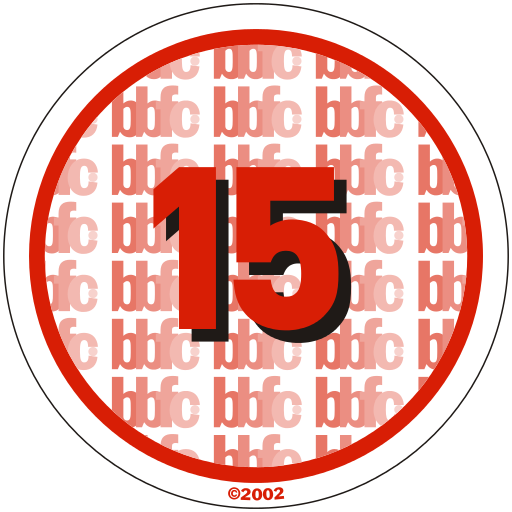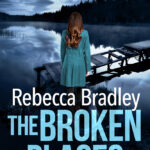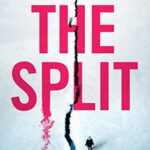
You walk into a bookshop and it’s split into lovely sections for you to browse. To make it easier to find what you’re looking for. If you’re a writer and you are approaching agents they will want to know what genre it fits into. This, so it can be “shelved” easily in that very bookshop. And if your book can’t easily fit into the headers the bookshop has created? Well you’re in trouble when looking for an agent because it makes their job more difficult when trying to sell it.
So we drill down into the header of children’s and wander over to this section in our bookshop and it’s split down yet again. This time into age of reader levels. The highest age bracket header in the children’s section is 9-14 (UK, Waterstones). You then have to go and browse the YA section. As a parent with a boy who is fast approaching 11 years of age, we have recently slipped into browsing the YA shelves because he has read all that interests him in the children’s section. I now have to be a bit cautious about what I’m buying with him.
So you get my point with the above description of bookshops, agents and the need to pigeonhole books into categories and age groups?
Give my son another couple of years or so and I’m sure his feet might be finding the urge to wander further afield in the bookshop. This would take him into the adult sections. He reads fantasy and science fiction type books. What would be waiting for him in these books?
Earlier this month I did a post on the level of violence in crime fiction books and at what stage people thought it became gratuitous rather than necessary to the story. And that our acceptance of such levels has changed in recent decades. There was a lot of conversation around this post and it continues to be something that I think about. Especially when the most recent book I have read had really graphic depictions of the mutilations inflicted on murdered women found by police officers. I wasn’t sure I could read on and ended up skim reading it when I realised it was dragging on longer than was necessary.
Now I get to my point. As a young reader yourself, I’m sure you were reading adult fiction before you were – an adult! As was I. But as I’ve said before. My staple diet was Agatha Christie. A much gentler read on the stomach. Horror fans maybe didn’t have such a gentler ride and they will come at me with that if they read this post, so I will acknowledge this now. But should children be reading such things at an age when their minds aren’t ready for it?

I’ve heard authors arguing against this for the very reason that they themselves picked up books to read when they were young and books should be available to all. Etc etc. I’ve also heard crime authors say they are definitely not allowing their children or grandchildren to read their books until they are a lot older. I know I’ve told my youngest he’s not reading mine. So if we absolutely will protect our own children this way, why won’t we do the same for other children who may live with parents who don’t vet the books or don’t even read?
Would it be so bad for books to be a little sensible when they are now so graphic, and have an age appropriateness rating on? What are your thoughts on this? I know it’s a subject that has people screaming censorship, but I don’t believe that’s what it is. I think it’s a little common sense in an ever increasingly violent immune world.



Tricky path to negotiate isn’t it? When I was a young reader and when my girls were young readers the levels of violence and indecent language and graphic sex acts weren’t as prevalent in the media. I don’t want kids to think that these sort of elements in reading are the “norm” but how to manage that I don’t know…Hopefully they will need adults shoppers (parents) to provide the $$$ for their books so you will have some control.
This is a very interesting post and a question that’s likely to draw up very different reactions. Unfortunately I don’t think there is a simple one size fits all answer to it. My parents took a fairly strong no censorship approach to books/tv/movies when I was growing up. If I didn’t want to watch it, I didn’t watch it or learned pretty quickly that it wasn’t for me. But then I was a very strong stomached child – the distinction between fiction and reality was very clear to me very early on. I also remember my parents being frustrated by censorship of the day. For example, if they wanted to see a movie with a restricted rating, even knowing I would be fine with it, they wouldn’t be able to take me along.
All this being said, I think it largely comes down to the child. I have a friend whose young daughter can be quite affected by the things she sees and reads and so content is often checked before she’s allowed to watch it.
So all things considered I would be reluctant to include a certified rating system for novels that prevent children outright from choosing books with tougher content, BUT some system that gives parents a little forewarning so that they can make a decision themselves as to what is/is not appropriate wouldn’t hurt. Of course there’s the other issue of how to undertake such a massive task…
I completely agree. Covers and blurbs can be misleading so a little forewarning as what is contained between the pages would be great, even for me now as an adult. There are some things I just don’t want to read about, but I don’t know how severe it might be until I’ve already read it!
Rebecca, your post is thought-provoking but it also raises more questions than answers. I have never seen children or young adults browse or buy novels from the adult fiction section. The closest I have seen them wander to is the fantasy shelf which in any case is stocked with YA fiction that even adults read. I do, however, see teenagers browse through books on self-help, philosophy, and religion which I attribute to parents and teachers as well as to the stresses of modern life. When I was in my teens I read a lot of adult fiction by eminent authors like Lloyd C. Douglas, Frank G. Slaughter, A.J. Cronin, Henry Denker, and Howard Fast. Of course, I also read a lot of titillating stuff by writers like Harold Robbins and Irving Wallace. In those days I just read whatever caught my fancy. In contrast, today’s young adults are more discerning in what they read, if they read anything at all.
As a grandparent I would find it very helpful to books age certified. Our 10 year old granddaughter devours books and if I take her to a bookshop I am never sure which books are suitable. Some of the ones she picks off the shelves look like adult books and I wouldn’t want to risk buying her something which her parents would think unsuitable
You’ve certainly raised some good points there, Rebecca. I do remember reading books more “adult” than my age at times, but these days the levels do seem markedly different. Like you, I was into Agatha Christie (I’m reading one for book club this week) but didn’t really see the same level of gratuitous violence. I think some books need trigger warnings … perhaps I should blog about that!
When my children were younger I did hold back some books from them. I also remember my son, then 14, putting a James Patterson book back on the shelf because it was too disturbing. I am glad I raised him to be strong in making that choice.
Good topic, one that’s been on my mind for a while. I think we need age guidance more than restrictions. When I was in high school I read the school library to bits, and because I was really into vampires and horror I cane across books I am very confident the librarians hadn’t read, because if they had the booms wouldn’t be in the school library. Nothing wrong with a good horror, as I said I that was what I wanted to read, but I cane across books I didn’t want to read, because they dealt with corpse-raping of all things. Not what I was looking for, and definitely not what I expected to find in the library of an Anglican school!
So yes. I vote for age guidances.
Rebecca – That’s an absolutely fascinating question. I do wonder about the violence in some books, and I agree that that sort of thing isn’t appropriate for younger readers. I think age guidelines might be really helpful, so that parents and grandparents, etc. could make informed choices. I also think those guidelines could help open a family dialogue so that parents could discuss a book’s themes with their children.
If they started a ratings board like they have for movies, think how long it would take for books to receive reviews though.
I started reading adult science fiction and fantasy many years before I was an adult, and most of it was rather safe. Some of the books today really get into adult situations, sex, and violence, but on a whole those two genres are usually clean.
This is a great topic–though I don’t know the answer. As a teacher, I’ve heard colleagues tell students not to read an adult book–to pick a story in their age range–but they don’t explain why. Even to the parents when they proudly share with the classroom teacher that their child is reading ****–an adult book. It needs explaining–that kids minds and maturity aren’t adults so it won’t make the right kind of sense (as you explained above).
Good discussion here, Rebecca.
I had this conversation with my 17 year old daughter at the weekend. We wanted to go to the cinema to watch Gone Girl but it’s an ’18’ so couldn’t do that. However, she can go into Waterstones and buy Gone Girl without question. I appreciate that the scenes on film may be deemed more graphic than words on a page but it did make us talk about age restrictions on books. We came to the conclusion we wouldn’t like to see that in place.
Fair point Rebecca. I can’t see age certifications happening for books but why not? Why aren’t books treated in the same way as movies, TV programs and games? Perhaps it is because they are only words on a page as opposed to visual images, but children still engage their imaginations when reading books, don’t they? Even when they read books with lots of pictures. Or are adults, or older children, or teenagers more adept at translating the written word into visual images? Again, it’s an interesting topic for debate.
Thinking back to my young reader days (a long time ago) all my books came from the library and I don’t think I was able to borrow from the adult section until I was 14. Fast forward to my daughter’s teenage reading (50 Shades series etc) and I don’t think she would have seen an age certificate on the books as a warning but as an enticement. They were on her older sister’s bookshelves so asking the bookshop to enforce the certificate wouldn’t have worked. Fascinating discussion!
No.
My three children were prolific readers and devoured books more than I ever did when I was younger. I preferred to leave it up to them regarding what they wanted to read. They all abhor violence (my son even got upset when a 7.30pm prime-time soap opera showed a man slap a woman – very sensitive boy indeed!). They chose books they liked (usually by an author who had a series like Goosebumps or Harry Potter). I gave my ‘highly sensitive’ son ‘Haroun and the Sea of Stories’ to read when he was about 9 years old and he absolutely loved it (who would think Salmon Rushdie would write such great children’s books). My Mother-in-law was horrified he was reading Salmon Rushdie, but, like Roald Dahl, Rushdie writes cross-genre. I’m talking 10-20 years ago here, but I think things have changes since then. I’ve noticed more writers seem to go for shock value now.
So, to sum it up – age certification may be a good thing, but I think trigger warnings are more important for all ages. I began reading another bloggers book a few weeks back that looked like it was a sweet love story. Three pages in I discovered it was about rape and torture so I stopped reading it. This was not mentioned anywhere in the blurb or on the (lovely sweet looking) cover so I felt ripped off. Had I known, I may have still read it, but I would have gone in with a different frame of mind.
I didn’t reply when I first read your post because I wanted to think about this one. I would have hated to have my reading censored as a youngster and I did read some horror which we passed around and certainly wouldn’t have been deemed appropriate reading but I do understand your apprehension and the clear comparison to films etc. The difference is, I think, that when reading you have to imagine the scenes and therefore if something isn’t within your comprehension then it doesn’t have the same impact (up to a point) I think warnings on books would work much better than age certificates but then I feel the same about films. I knew what my children were able to cope with and if a film came out on video (as it was then) and I thought they’d enjoy it I wouldn’t refuse to buy it because they were 14 and not 15. Children don’t come in standard packages and a whole industry would have to be built around certifying books. There is also the problem of what happens in school, can you have books with a 15 cert in a class that is mixed 14 – 15 year olds or not? Interesting question with no real easy answers except that good parents always keep an eye on what their children are doing in whatever medium that happens to be.
As many of the other commenters say, this isn’t an easy question to answer. Censorship is a difficult thing and particularly so if you’re trying to encourage the development of young minds, but also have a duty to be protective.
I’m not entirely convinced that the protection aspect is really even covered by censorship, but yes, more guidance for parents, carers and young people themselves could be useful.
However, being informed and informative about young people’s reading material is what ‘good’ parents do quite naturally.
A child, with uninterested, or just plain distracted, parents who is determined to read a particular book will do so whatever. If books were stamped as to age of reader, would we then have to ask bookshop and library staff to get proof of age.
During my thirty-six years as primary school teacher I found that children tended quite naturally to read age-appropriately. If the book was beyond them or too gross or gruesome they tended to give up reading it. However, there were also the children who could cope with material deemed too old for them and who, in spite of parental objection managed to read it covertly.
Yes, like I say, not an easy question.
Very interesting topic! A short while ago I’d probably have said that I’m against age censorship, because I always hated it (for films) as a child and I read anything and everything as a child… and look how well I turned out! But I’ve started to notice that my 11 year old is perhaps not quite as mature as he thinks and a lot more impressionable. It’s not just the graphic violence – there are adult themes that he just doesn’t understand. I think it’s good to move into these areas gradually and discuss them with parents or teachers or trusted adults. But often the adults themselves don’t quite know what the book is about. For instance, I’m not sure about The Hunger Games being suitable for my 11 year old – because I haven’t read it (nor do I wish to, because I don’t think it’s particularly well written, but I can’t impose my taste on my kids). So more details would be useful.
I don’t agree that books should be defined as age-appropriate. I could recite personal reasons – Jurassic Park was the first adult book I read, at age ten, and I’ve been reading Stephen King for almost as long – but I think the idea has other problems.
If you put an age-sticker on the spine, why would a child (or teen) heed it? Adult vs. children’s books are already fairly obvious just from the cover, with a few exceptions (Neil Gaiman), so any child that doesn’t want to read an adult book won’t be lured in by false promises.
The age-sticker could just be for the parent, then, like movie or game ratings. But those ratings are useful only because children below a certain age aren’t allowed into certain movies, or to buy certain games. Should a bookstore or library refuse to sell/lend to a child that picks up a book deemed age-inappropriate? I’d have stopped going to both because I couldn’t get what I wanted.
The idea of regulating books for kids isn’t ridiculous, but instituting any sort of widespread mandatory regulation is a bad idea. It serves no purpose for children, only makes the adults feel better, and might inhibit a love of reading.